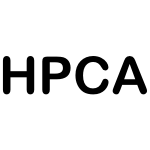19 papers:
 CHI-2015-IonWB #physics
CHI-2015-IonWB #physics- Skin Drag Displays: Dragging a Physical Tactor across the User’s Skin Produces a Stronger Tactile Stimulus than Vibrotactile (AI, EJW, PB), pp. 2501–2504.
 HIMI-IKD-2015-IwamotoH #induction #using
HIMI-IKD-2015-IwamotoH #induction #using- Induction of a Relaxed State Using a Vibration Stimulus Based on the Respiratory Cycle (NI, HH), pp. 386–395.
 CHI-2014-CrnovrsaninWM #reduction #visual notation
CHI-2014-CrnovrsaninWM #reduction #visual notation- Stimulating a blink: reduction of eye fatigue with visual stimulus (TC, YW, KLM), pp. 2055–2064.
 HIMI-D-2013-TsangCC
HIMI-D-2013-TsangCC- Effects of Stimulus Orientation, Grouping and Alignment on Spatial S-R Compatibility (SNHT, KWLC, AHSC), pp. 650–659.
 DAC-2012-AhmadyanKV #generative
DAC-2012-AhmadyanKV #generative- Goal-oriented stimulus generation for analog circuits (SNA, JAK, SV), pp. 1018–1023.
 DATE-2011-LiuSTV #design #generative #towards #using #validation
DATE-2011-LiuSTV #design #generative #towards #using #validation- Towards coverage closure: Using GoldMine assertions for generating design validation stimulus (LL, DS, WT, SV), pp. 173–178.
 KDIR-2010-OzekiKT #analysis #multi #network
KDIR-2010-OzekiKT #analysis #multi #network- Multi-modal Analysis of Complex Network — Point Stimulus Response Depending on Its Location in the Network (TO, TK, YT), pp. 226–231.
 HPCA-2010-LeeCC #multi #named #performance
HPCA-2010-LeeCC #multi #named #performance- StimulusCache: Boosting performance of chip multiprocessors with excess cache (HL, SC, BRC), pp. 1–12.
 DATE-2009-KorhonenK #identification
DATE-2009-KorhonenK #identification- A loopback-based INL test method for D/A and A/D converters employing a stimulus identification technique (EK, JK), pp. 1650–1655.
 HIMI-DIE-2009-VuRR
HIMI-DIE-2009-VuRR- The Effects of Practice and Speed Stress with Different Stimulus-Response Mappings (KPLV, AR, RR), pp. 709–717.
 DATE-2008-PlazaMB #constraints #generative #random #using
DATE-2008-PlazaMB #constraints #generative #random #using- Random Stimulus Generation using Entropy and XOR Constraints (SP, ILM, VB), pp. 664–669.
 CHI-2007-TianAWSD #3d
CHI-2007-TianAWSD #3d- The tilt cursor: enhancing stimulus-response compatibility by providing 3d orientation cue of pen (FT, XA, HW, VS, GD), pp. 303–306.
 DATE-v1-2004-SinanogluO #power management
DATE-v1-2004-SinanogluO #power management- Scan Power Minimization through Stimulus and Response Transformations (OS, AO), pp. 404–409.
 DAC-2002-FoltinFT #abstraction #concept #independence #modelling #performance
DAC-2002-FoltinFT #abstraction #concept #independence #modelling #performance- Efficient stimulus independent timing abstraction model based on a new concept of circuit block transparency (MF, BF, ST), pp. 158–163.
 HCI-SEC-1997-KnizhnikHMG #design #interface #navigation #semantics #web
HCI-SEC-1997-KnizhnikHMG #design #interface #navigation #semantics #web- Semantic Stimulus Structure in World Wide Web Interface Design for Navigation by Novice Users (SZK, PEVH, MM, GG), pp. 823–826.
 CHI-1996-Wolber #named #programming
CHI-1996-Wolber #named #programming- Pavlov: Programming by Stimulus-Response Demonstration (DW), pp. 252–259.
 ICPR-1996-IdoATS #segmentation
ICPR-1996-IdoATS #segmentation- Stimulus-driven segmentation by Gaussian functions (SI, SA, RT, MS), pp. 487–491.
 TRI-Ada-C-1992-Cherry #ada #behaviour
TRI-Ada-C-1992-Cherry #ada #behaviour- Stimulus Response Machines: An Ada-based Graphic Formalism for Describing Class and Object Behavior (GWC), pp. 321–332.
 HCI-SES-1987-QuintanarCM #human-computer #interactive #social
HCI-SES-1987-QuintanarCM #human-computer #interactive #social- The interactive Computer as a Social Stimulus in Human-Computer Interactions (LRQ, CRC, PJM), pp. 303–310.
 CHI-2015-IonWB #physics
CHI-2015-IonWB #physics HIMI-IKD-2015-IwamotoH #induction #using
HIMI-IKD-2015-IwamotoH #induction #using CHI-2014-CrnovrsaninWM #reduction #visual notation
CHI-2014-CrnovrsaninWM #reduction #visual notation HIMI-D-2013-TsangCC
HIMI-D-2013-TsangCC DAC-2012-AhmadyanKV #generative
DAC-2012-AhmadyanKV #generative DATE-2011-LiuSTV #design #generative #towards #using #validation
DATE-2011-LiuSTV #design #generative #towards #using #validation KDIR-2010-OzekiKT #analysis #multi #network
KDIR-2010-OzekiKT #analysis #multi #network HPCA-2010-LeeCC #multi #named #performance
HPCA-2010-LeeCC #multi #named #performance DATE-2009-KorhonenK #identification
DATE-2009-KorhonenK #identification HIMI-DIE-2009-VuRR
HIMI-DIE-2009-VuRR DATE-2008-PlazaMB #constraints #generative #random #using
DATE-2008-PlazaMB #constraints #generative #random #using CHI-2007-TianAWSD #3d
CHI-2007-TianAWSD #3d DATE-v1-2004-SinanogluO #power management
DATE-v1-2004-SinanogluO #power management DAC-2002-FoltinFT #abstraction #concept #independence #modelling #performance
DAC-2002-FoltinFT #abstraction #concept #independence #modelling #performance HCI-SEC-1997-KnizhnikHMG #design #interface #navigation #semantics #web
HCI-SEC-1997-KnizhnikHMG #design #interface #navigation #semantics #web CHI-1996-Wolber #named #programming
CHI-1996-Wolber #named #programming ICPR-1996-IdoATS #segmentation
ICPR-1996-IdoATS #segmentation TRI-Ada-C-1992-Cherry #ada #behaviour
TRI-Ada-C-1992-Cherry #ada #behaviour HCI-SES-1987-QuintanarCM #human-computer #interactive #social
HCI-SES-1987-QuintanarCM #human-computer #interactive #social









